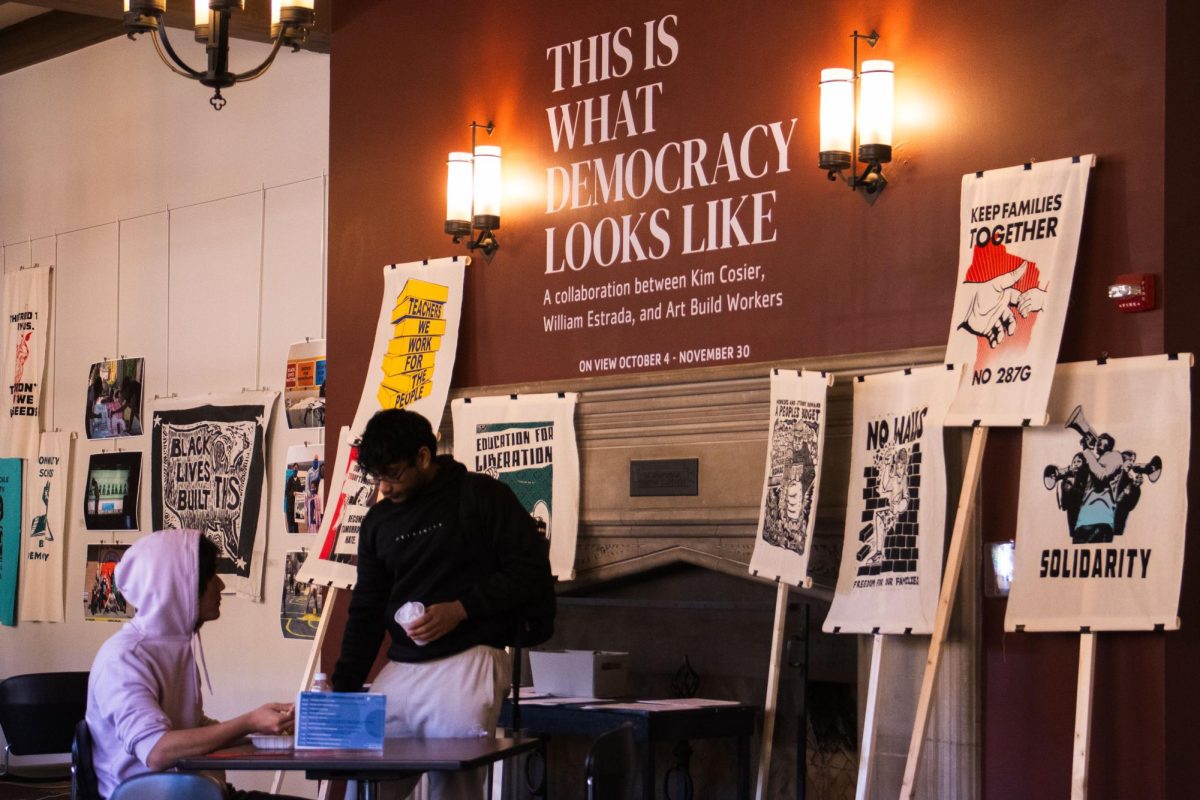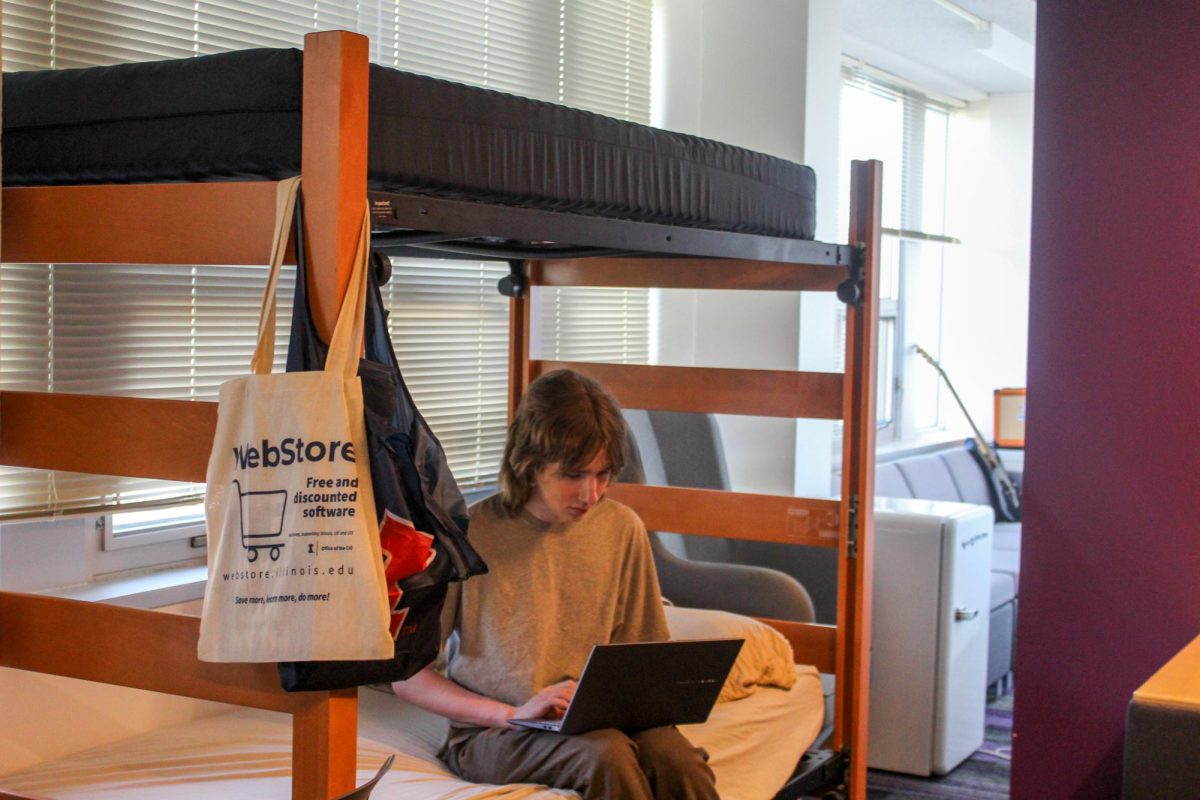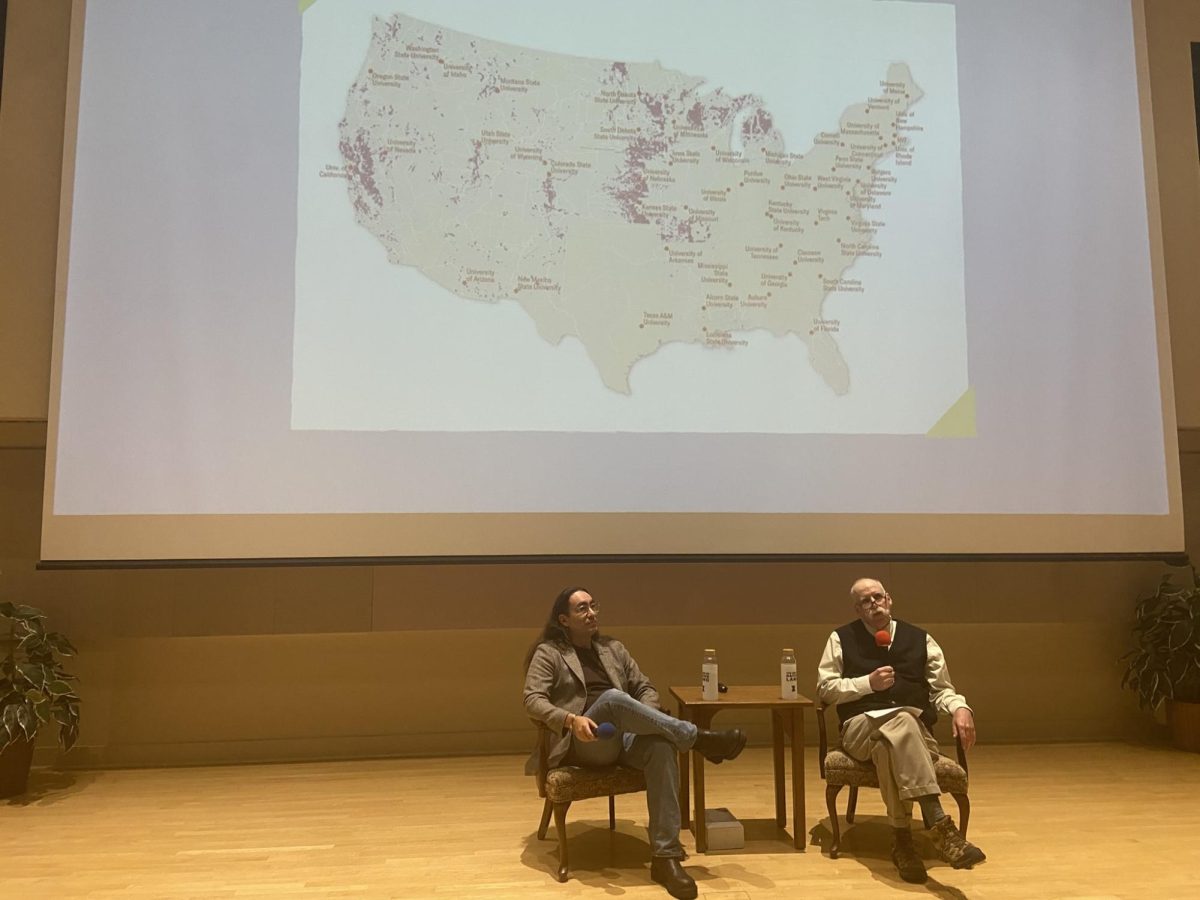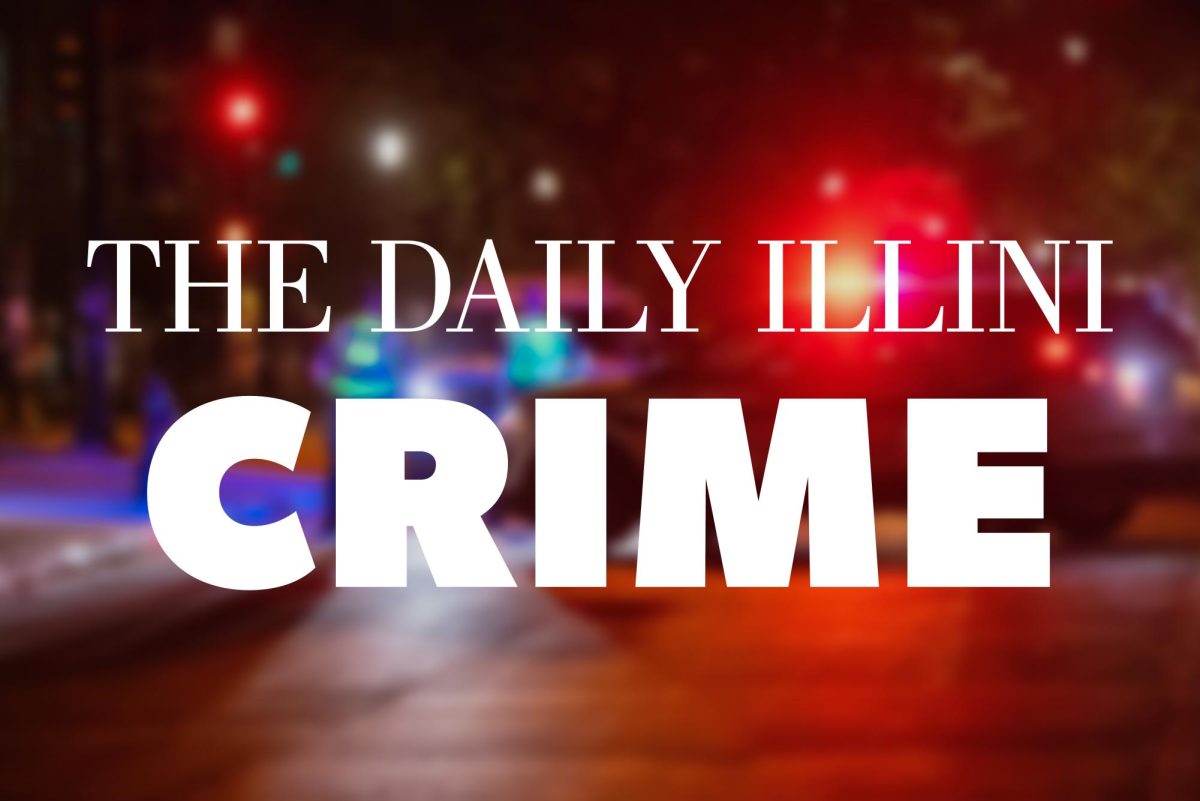Since Florida passed its 2022 Stop WOKE Act and conservatives have pushed back against teaching critical race theory in schools, the fallout of the student protests last spring is the latest example of the information wars waged on school campuses. In the final leg of the University’s Democracy Summit, the Office of Civic Life hosted a Civic Cafe talk on Wednesday on the extent to which liberal education and freedom of speech are possible at universities.
Legal Director of the Foundation for Individual Rights and Expression Will Creeley and the American Association of Colleges and Universities President Lynn Pasquerella were invited to talk at the Spurlock Museum. Creeley has extensive experience representing student activists and journalists as a First Amendment attorney. Pasquerella formerly served as president of Mount Holyoke College, advocating for liberal education as a crucial pillar of democracy.
Last spring’s encampments protesting the occupation and war in Gaza saw a barrage of arrests and retaliations by universities across the nation. Simultaneously, accusations of antisemitism brought presidents of Ivy League schools to testify before Congress. Pasquerella said it is because of this fear of being brought in front of a panel that university leaders have felt pressured to “over-correct” at the accusation of antisemitism.
“There is governmental overreach into every aspect of college operations, educational gag orders on a scope never seen before,” Pasquerella said. “All of this is creating a sense of moral distress among campus leaders, who feel like they’re being coerced into making decisions they believe are unethical, but they feel they have no choice.”
Instead of trying to control speech and dissent, Creeley argues universities should be the stage where political demonstrations from all students can be represented. This is because pushing one view of what is righteous will only polarize those who disagree. Creeley and Pasquerella affirmed this is necessary to produce educated citizens who can discern and engage with ideas meaningfully.
Get The Daily Illini in your inbox!
The suspicion from opposing groups toward universities taking political stances will only fuel the one-track, outrage-based partisan thinking often seen on Fox News, Creeley said. To prevent this pushback, he said, universities must teach students how to form their own beliefs.
As a free speech advocate, Creeley worries about the “illiberal attitudes” from administrations to dissent on campus.
“Pedagogically, university faculty have to be free to explore the truth where it leads them to engage in what they call at the University of Wisconsin, ‘sifting and learning of ideas’; again, not out of authoritative selection, but rather out of the university faculty’s own professional sense of what’s right and what is interesting to study,” Creeley said.
In the United States, hate groups are protected in their right to exist by the First Amendment, and Pasquerella raised the concern that this will allow hate speech to threaten marginalized groups on campus.
In response, Creeley reaffirmed that universities must protect all students. However, he worries this approach has become overly paternalistic. As Jewish Zionist groups have done, Creeley said, having subjective student emotions dictate university policy is dangerous. Whether the university president demands the taking down of Palestinian or Israeli flags, they will find themselves in conflict with their mission of protecting all students’ rights to expression and depriving students of an educational benefit.
“I don’t want students to receive the message no matter their particular individual identities that they cannot participate, or just simply not built to participate, even if they do bear more of the brunt of it in their lives,” Creeley said.
Referencing an 1834 abolitionist protest at Harvard and the Vietnam War protests in the 1960s and 1970s, Pasquerella affirmed the importance of protest as a critical part of American higher education.
“There are also lessons we can learn from nature, and that is it’s never a good idea to stifle a conversation,” Pasquerella said, referencing the well-known Louis Brandeis quote: “The remedy to bad speech is more speech.”







